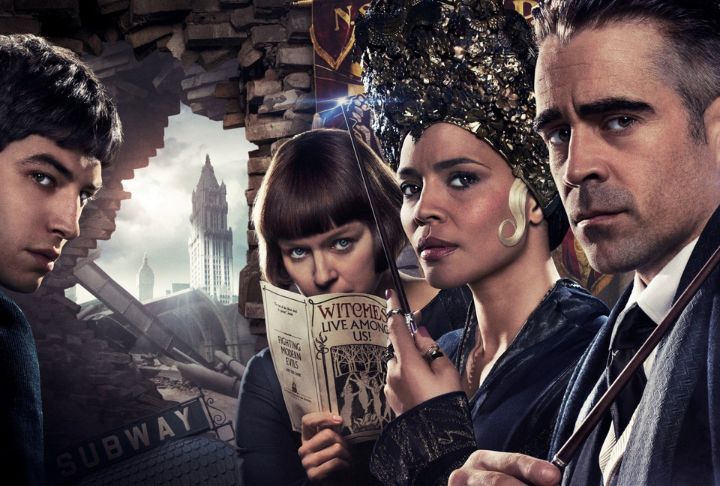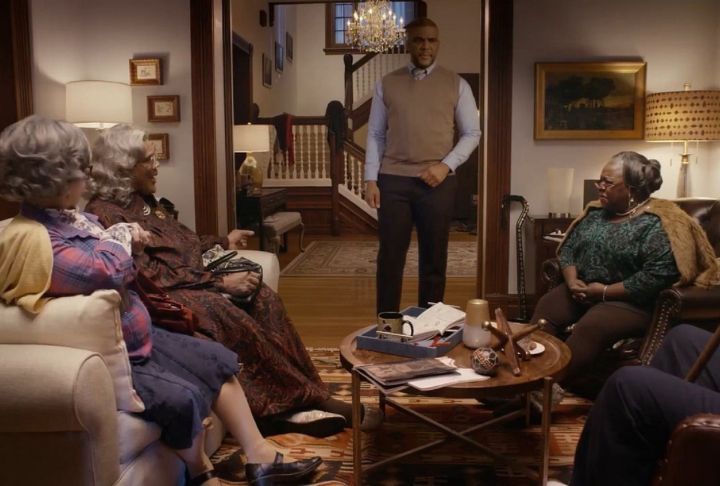
Some franchises need help finding their footing despite promising beginnings and fan anticipation. Once poised for greatness, these ten-movie series faltered, failing to produce a single standout film. With misguided adaptations and repetitive storytelling, each franchise on our list faced unique challenges that prevented it from achieving critical acclaim or box office success.
Leprechaun

Despite its cult following, the “Leprechaun” franchise has consistently failed to deliver a critically acclaimed or commercially successful film. The blend of horror and dark humor never quite found its balance, leading to a series known more for its campiness than quality scares. Each installment bumbled with maintaining a coherent storyline and failed to evolve beyond its initial novelty premise. Ultimately, the franchise’s inability to reinvent itself or capture broader audience appeal kept it from producing a standout hit.
Children Of The Corn

Adapted from Stephen King’s short story, the “Children of the Corn” series struggled to maintain the eerie tension of its source material. Even with numerous sequels, none recaptured the original’s chilling atmosphere and psychological depth. Over-reliance on repetitive plots involving murderous children and a lack of fresh ideas contributed to its decline. The franchise became synonymous with predictable horror clichés rather than innovative storytelling, failing to resonate with modern audiences beyond its initial cult following.
Fantastic Four

Despite the popularity of the Marvel comics, the “Fantastic Four” movies have consistently disappointed fans and critics. Efforts to revive the series faltered because of insufficiently developed characters, uninspiring antagonists, and an inability to grasp the essence of the cherished superhero ensemble. Multiple reboots and recasting efforts only highlighted the struggles in translating the Fantastic Four’s dynamic to the big screen. The inability to find a compelling narrative angle or cohesive direction prevented the franchise from achieving the success enjoyed by other Marvel properties.
Resident Evil

Drawing inspiration from the widely acclaimed video game franchise, the “Resident Evil” movies initially capitalized on their action-horror blend but quickly succumbed to formulaic storytelling and diminishing returns. Over time, the franchise prioritized spectacle over substance, sacrificing plot coherence and character development for elaborate action sequences. For all the loyal fan base it boasted, the movies still could not maintain continuity and creative momentum across multiple sequels. The franchise’s decline mirrored a shift from horror to generic action, losing the atmospheric tension that defined its early success.
Underworld

“Underworld” began promisingly with vampires and werewolves but failed to sustain momentum beyond its initial installments. The series became mired in convoluted mythology, overly complicated plotlines, and diminishing character arcs. In spite of the strong performances from lead actors, the franchise struggled to expand its universe cohesively and differentiate each sequel from its predecessors. Relying on repetitive conflicts and predictable narrative twists prevented “Underworld” from evolving into a lasting cinematic universe.
Fantastic Beasts

A spin-off from the beloved “Harry Potter” series, “Fantastic Beasts” failed to capture the magic that enchanted audiences worldwide. It had rich source material and a talented cast, but the franchise stumbled with disjointed storytelling, pacing issues, and a departure from the whimsical charm of its predecessor. Attempts to expand the wizarding world’s lore often felt forced, lacking the emotional depth and cohesive narrative that made “Harry Potter” a cultural phenomenon. The franchise’s inability to connect with fans on a deeper level resulted in mixed reviews and declining box office returns.
Fifty Shades Of Grey

Adapted from E.L. James’ bestselling novels, the “Fifty Shades” movies faced criticism for their shallow character development and problematic portrayal of relationships. Its dedicated fan base couldn’t do much as the films did not transcend their source material’s erotic origins, failing to provide compelling storytelling or meaningful character arcs. The franchise’s reliance on explicit content overshadowed attempts at deeper emotional exploration, limiting its appeal beyond a niche audience. Critical reception highlighted issues with pacing, dialogue, and a lack of chemistry between lead characters.
Alvin and the Chipmunks

Initially popular with younger audiences, the “Alvin and the Chipmunks” movies quickly devolved into cash-grab sequels devoid of creativity or charm. The franchise leaned heavily on juvenile humor and recycled plotlines, diluting the endearing qualities of its animated origins. The movie had occasional box office success, but each installment struggled to justify its existence beyond marketing tie-ins and nostalgic callbacks. The series’ decline reflected a disconnect between new entries and the timeless appeal of its original animated shorts.
Madea

Tyler Perry’s “Madea” movies enjoyed initial success with their unique combination of comedy and family drama but faced criticism for repetitive plots and stereotypical characterizations. Even with Perry’s popularity and versatility, the franchise struggled to evolve beyond Madea’s loud-mouthed antics and predictable moral lessons. Attempts to branch out into different genres often felt forced, needing more of Perry’s earlier works’ authenticity and emotional resonance. The series’ decline echoed a creative stagnation, failing to innovate or surprise audiences with fresh storytelling.
Atlas Shrugged

Adapted from Ayn Rand’s influential novel, the “Atlas Shrugged” movies failed to resonate with audiences due to heavy-handed philosophical themes and stilted dialogue. Attempts to capture Rand’s complex ideas on capitalism and individualism fell through, so the films struggled to translate these concepts into engaging narrative arcs. Criticism centered on wooden performances, didactic storytelling, and a lack of subtlety in conveying Rand’s worldview. The franchise’s failure to attract mainstream appeal highlighted challenges in adapting dense philosophical literature for broader cinematic audiences.

Comments
Loading…